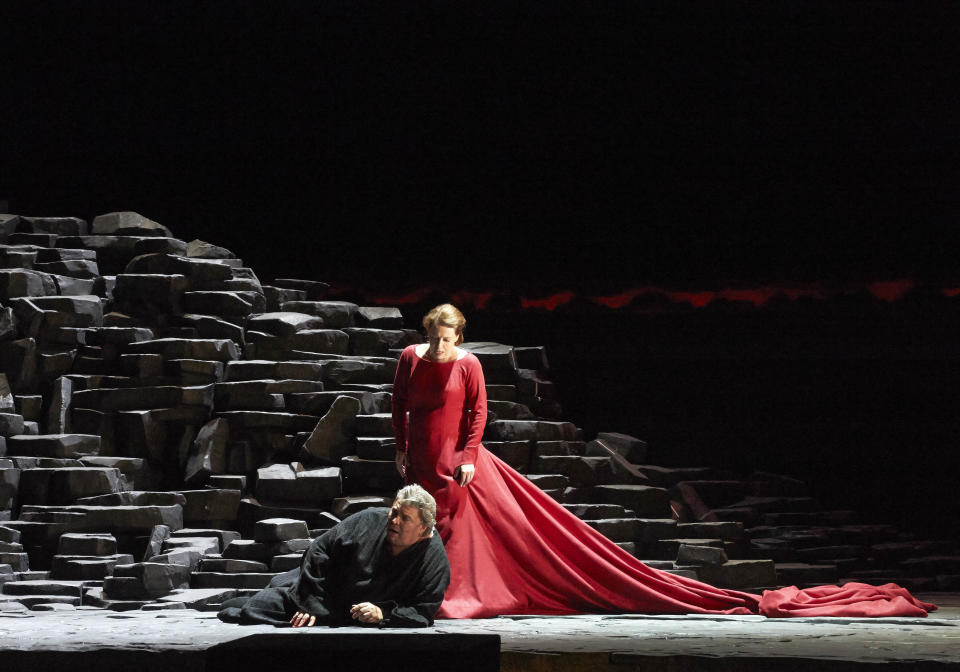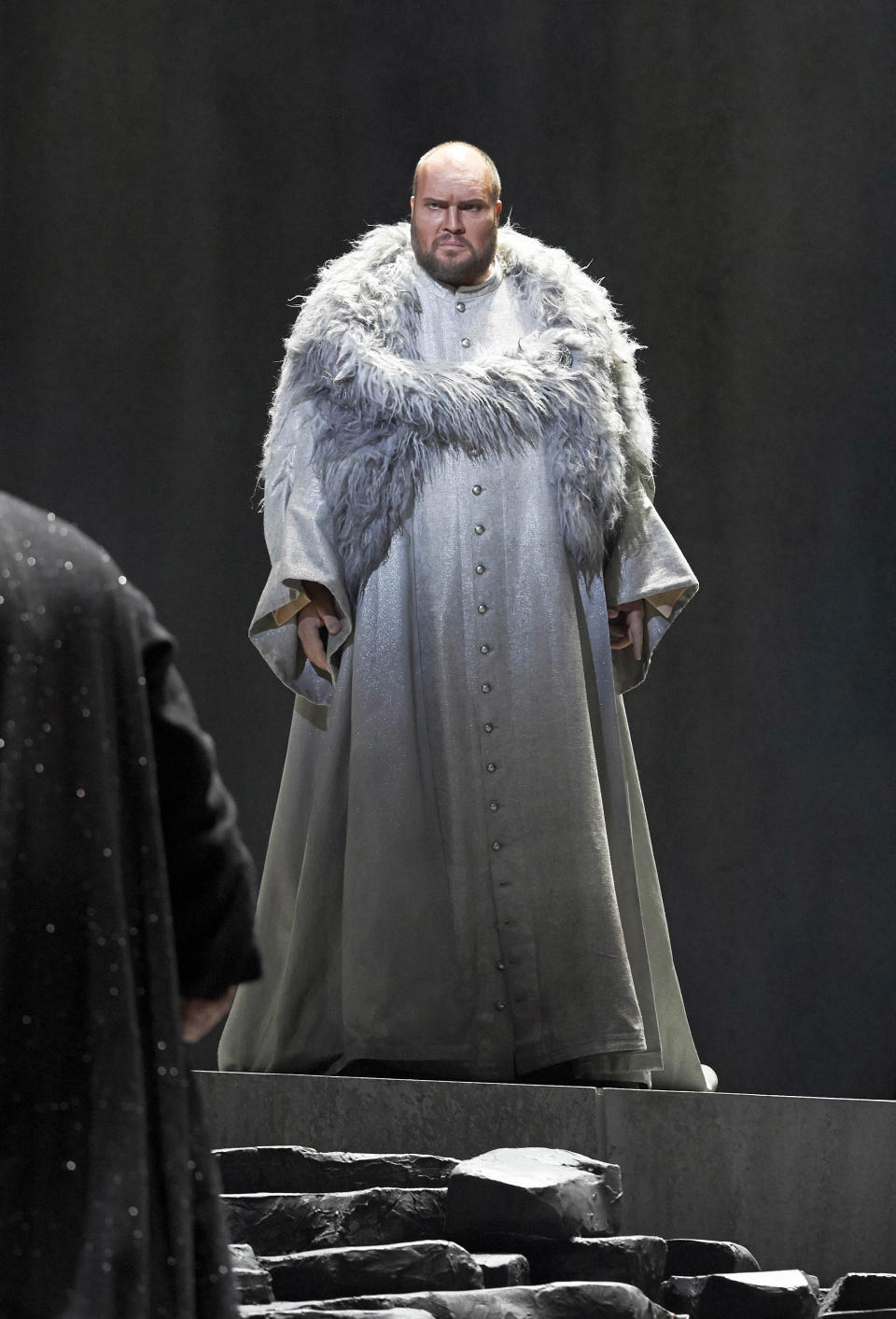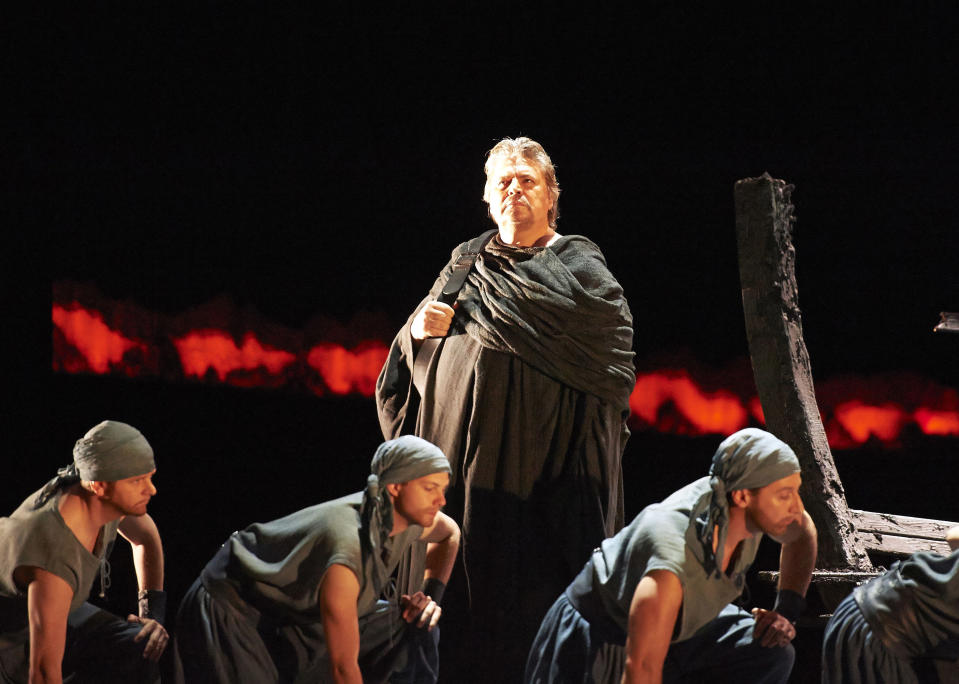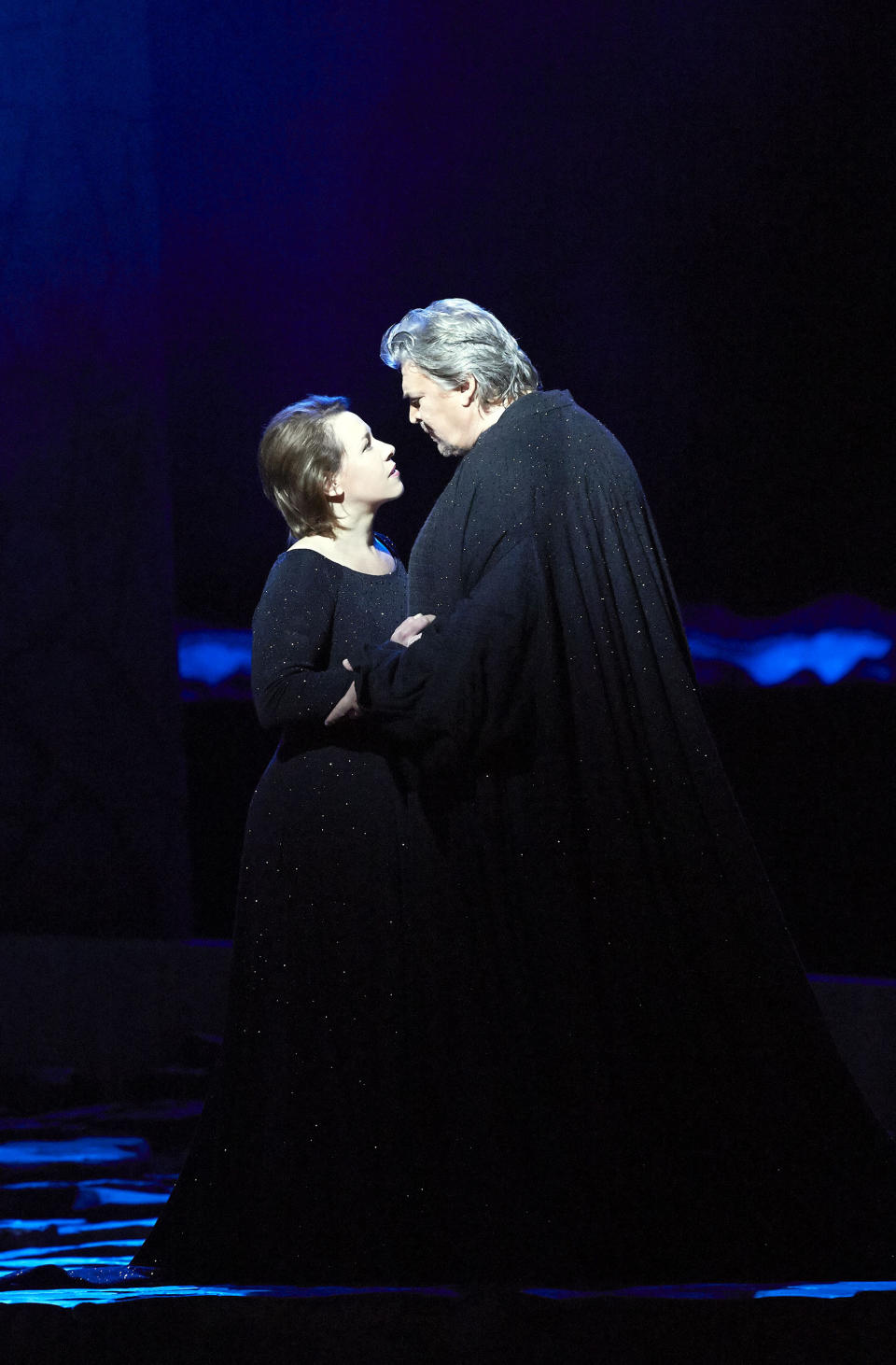Stemme shines as Isolde in Wagner's love story
VIENNA (AP) — Can watching two people suffer for four hours be enjoyable? The Vienna State Opera makes it happen with its new production of "Tristan and Isolde."
Richard Wagner's ultimate love story of tragic passion, deceit and death often ends up as an evening of tedium, or worse, kitsch. But with thoughtful directing, some wonderful voices and staging that doesn't fight the story, the version that premiered Thursday is a winner.
It's not easy to overcome the hurdles standing in the way of a successful production.
There is little action, with the scenery alternating between a ship's deck, a garden and a linden tree, in Wagner's original. What's more, the stage is dominated by only two characters, the star-crossed lovers. The four other principals make only brief appearances.
For the audience, the unintentional result is often "sleep without awakening," to lift a phrase in another context from Wagner himself.
Not on Thursday though. The hugest kudos go to Nina Stemme as Isolde, the proud medieval Irish princess, whose initial hatred of the conquering hero from England is eclipsed only by the subsequent love that consumes both until eternal union in death.
The part calls for a voice that can soar above the orchestra one moment to diminish into a barely heard sung whisper the next. Stemme met the challenge and then some, with rich texture, masterly vocal control and seeming lack of effort that belied the difficulties of the role.
Her acting also was superb. From the first histrionics of a proud noblewoman who feels abducted by the enemy to the poignant final moment where she is joined inseparably with Tristan, she is capable of making the character believable — no easy task for an audience far removed from the Romantic era of the late 19th century.
No wonder Tristan couldn't keep up.
Peter Seiffert was no more than OK, as the hero from Cornwall tasked with delivering Isolde to his uncle, the king, only to fall for her instead. Lovely when soft, his voice occasionally sounded thin and strained in the upper registers when competing against the orchestra. Dramatically, he also fell short of the high bar placed by Stemme.
Other singers who impressed: Janina Baechle as Brangaene, Isolde's maid; Stephen Milling as Marke, the cuckolded king of Cornwall and Jochen Schmeckenbecher as Tristan's trusty servant, Kurwenal.
The score is arguably the finest Wagner has ever written and conductor Franz Welser-Moest and the Vienna State Opera Orchestra lived up to its promise. They moved skillfully from the barest of musical shudders to crashing waves of sound depicting anger or ardor at its highest pitch — and everything in-between.
Also worthy of mention: While the opera is sometimes overproduced to make up for the lack of action, this "Tristan and Isolde" is spot on.
Though stylized for today's audience, the scenery is recognizably as specified by the composer, while the staging hits strongly on a central theme — the lovers' horror of day and embrace of the night. Chapeau to director David McVicar, scenery designer Robert Jones and lighting designer Paule Constable.
"Tristan and Isolde," Wagner once wrote, was meant to be a "monument to that most beautiful of dreams" — love.
For all non-cynical audience members, this new production comes close.






